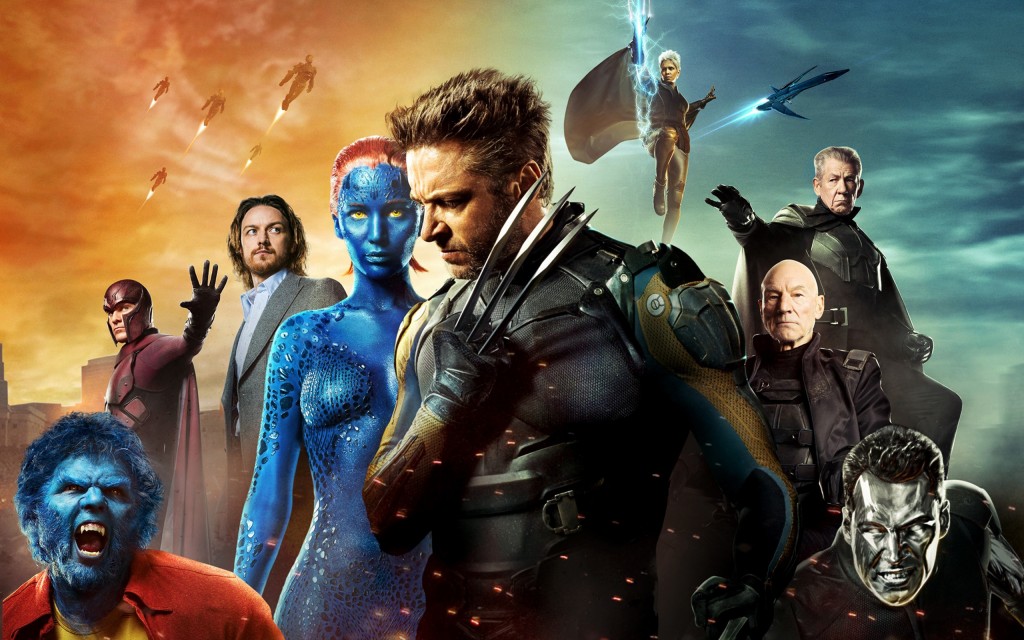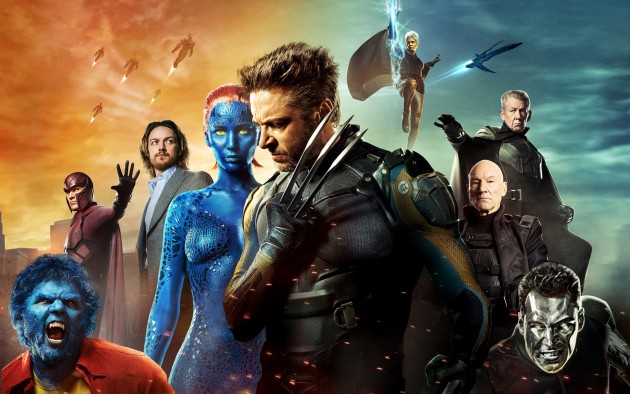
Before Sam Raimi’s Spiderman films, before Iron Man, the Avengers and even Marvel Studios, before Christopher Nolan’s Batman, there was X-Men. The film that jumpstarted this comic book movie boom, Bryan Singer’s effort from 2000 remains perhaps the best installment in the series, along with the sequel that followed, X-2: X-Men United. Then Singer jumped ship to helm Superman Returns and the franchise went belly up with a series of misfires. That is until Matthew Vaughn restored some prestige with X-Men: First Class. But now Singer is back and he’s brought a few friends along too.
Days of Future Past is based on Chris Claremont and John Byrne’s original story in The Uncanny X-Men comic, and follows a Terminator-like plot with Wolverine (Hugh Jackman) going back in time to avert a future catastrophe. This plot device allows for a kind of super crossover with the casts of Singer’s X-Men and Vaughn’s First Class all sharing screen time.
Essentially the premise is that mutants in the future are on the verge of extinction, hunted by robotic sentinels that are able to adapt to the mutants’ every power. In a desperate last throw of the dice, the last remaining X-Men and Magneto take refuge in a temple high in the mountains of China and while the others defend their position against a barrage of sentinels, Kitty Pryde (Ellen Page) sends Wolverine back in time to change the course of the future.
Waking up in the body of his younger self in the 1970s, Wolverine then has to unite sworn enemies Xavier (James McAvoy) and Magneto (Michael Fassbender) and prevent Mystique (Jennifer Lawrence) from assassinating the designer of the sentinels, Bolivar Trask (Peter Dinklage), and setting this terrible future in motion.
The most impressive thing about the first X-Men film was how it built believable and compelling relationships within a fantastical world. The relationships between Xavier and Magneto and especially between Wolverine and Rogue in the first film were the bedrock for audiences identifying with these characters. Add to this the barely concealed subtext of equal rights for anyone outside of the white heterosexual male definition of normal and X-Men had a real substance to it. In addition to this, the film was witty and built to a thrilling conclusion. It made Hugh Jackman into a star.
Fast-forward through a third sequel and two Wolverine films and the franchise was running at rock bottom, but then First Class came along, and while it is far from being a great film it was something of a return to form. The key to it’s success was placing the Xavier-Magneto relationship at the centre of the film and casting two great actors in McAvoy and Fassbender in those roles. It even threw in a kind of love triangle with Mystique that complicated the relationship further.
Days of Future Past is a thrilling blockbuster with spectacle and humour, but it’s missing those deeper investigations of the key players that would take it to the next level. In many ways, I was much more compelled by the brief glimpses of the future X-Men, because I felt like I knew their relationships better, I understood the bond between them because Bryan Singer had developed it over the course of two films.
Part of the problem with Days of Future Past is getting Magneto and Xavier together. The relationship that held together First Class is oddly neglected here and Magneto is let off the hook to revert to villainous type all too quickly in the film. And while Fassbender and McAvoy are both very good in the film, you never feel the same intensity in their relationship that First Class managed to convey so well.
The main reason for this problem is star power. Bringing back the original cast of X-Men into the world of First Class meant bringing back Hugh Jackman as Wolverine – X-Men’s marquee star. Then there’s Jennifer Lawrence, who’s got her own hugely popular film series in the form of The Hunger Games and won an Oscar in the three years since First Class. No-one could have foreseen just quite how high her star would rise and as a result she has a sizable part in Days of Future Past even though Mystique is a minor X-Men character. The inclusion of these two huge stars naturally eats into the screen time of McAvoy and Fassbender. The problem is that Wolverine and Mystique have no relationship in this film- anytime that Wolverine comes within a mile of Mystique, then the filmmakers take him out of the picture. So a deep and meaningful relationship is sacrificed for one that doesn’t even exist.
At times it’s difficult to tell who the film’s protagonist is – with the filmmakers struggling to find something for Wolverine to do, although it seems clear he is supposed to be the protagonist – and the film fails to move on the relationships of the characters. The lack of character development comes to a head during the film’s finale when the audience are taken out of the plot of the film due to what feels like a huge leap in character logic.
The special effects are a little cartoonish at times also (CGI decapitations abound in the future) and the period setting just seems to add to the total lack of realism – the 70s past features a terrible Nixon caricature – which only serves to undermine the drama. These issues aside, there are many positives, particularly the scenes involving Quicksilver, which literally offer a welcome change of pace and Singer delivers the satisfying ending that he promised fans. The director appears to be at something of a crossroads though. After an incredible start to his career, he is in danger of slipping into mediocrity, as ultimately Days of Future Past proves there is no going back for Singer or the X-Men. Richard Davis





